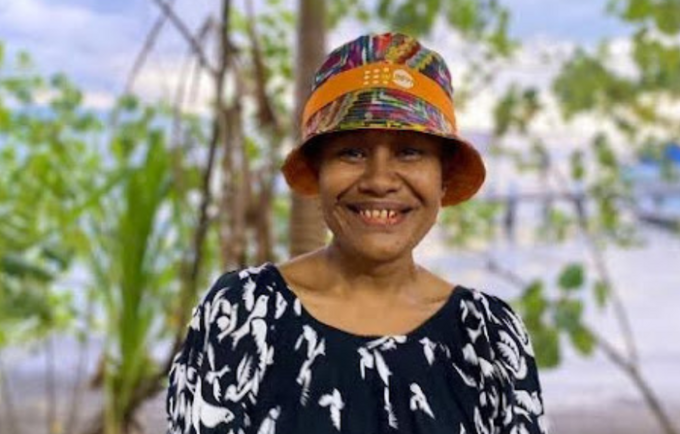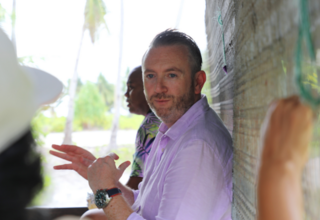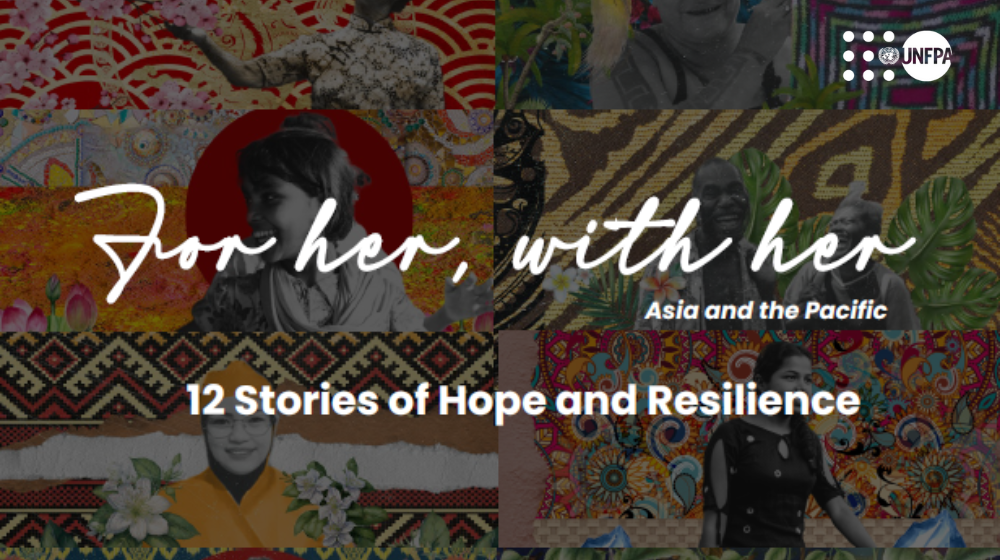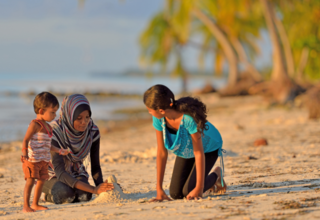Midwives like Diana play a critical role in the health system of Papua New Guinea, offering lifesaving obstetric care in a country with high maternal mortality rates. For every 1000 births as many as 9 mothers and 24 newborn babies die according to WHO. Midwives are also sometimes the only witnesses to the physical and emotional scars suffered by survivors of gender-based violence (GBV). UNFPA, with the support of Zonta International and in partnership with government, including the National Department of Health, the Department of Community Development and Religion, and the Department of Higher Education, Science and Technology of Papua New Guinea, is working towards empowering health care professionals, including midwives like Diana, to provide lifesaving care, dignified and respectful support.
A survivor-centered approach
In the country’s remote Milne Bay Province, UNFPA has partnered with key national stakeholders to strengthen the health system response to gender-based violence through the Family Support Centers which are key entry points for survivors of violence to receive respectful care in a safe and private environment, supported by the nearest hospitals. UNFPA led trainings on gender-based violence have equipped Family Support Centers and local hospital staff with the knowledge and skills to effectively support and treat all survivors of gender-based violence. Diana, a midwife at the Obstetrics and Gynecology Clinic in the capital city of Alotau, is one of the beneficiaries of the training. For her, it was a career-transforming experience
Communication is key
“I learned so much at the training,” Diana shares. “I didn’t know anything about the LIVES approach, and learning its principles has helped me improve my communication with my patients. And ever since my training, when I suspect that a woman who has come in for a check-up is experiencing violence – I reach out.”
Prior to the training, Diana had always felt uncomfortable and scared to ask about violence assuming that her patients would get upset or angry if the subject was brought up, but through the training, Diana learned different ways to approach a survivor. “Now, I ask open-ended questions like ‘Would you like to share your experience with me?” Diana recounts. Asking about violence in a sensitive, empathic and non-judgemental way is key to creating an environment conducive to the survivor. It makes survivors feel more at ease and comfortable enough to open up to share their stories, even difficult and painful ones, when they are ready to do so.
Not only is reframing questions important when speaking to survivors, but so is the choice of words and language. To talk about her patients, now Diana uses the word ‘survivor’, which implies empowerment and strength, as opposed to ‘victim’. Diana encourages her colleagues to do the same.
Another major take-away from the training for Diana is the understanding that her job, first and foremost, is to make survivors as comfortable as possible so that they can choose the services they want to receive. “Before the training I thought that I should report gender-based violence cases to the police right away,” she shares. “But now I know that this is not always the correct way. Survivors should be given the choice to choose the services they receive with clear information.”
Bringing the smiles back
For Diana, the most meaningful thing about her job is seeing that the women she serves are safe and are able to access the follow-up care and services that they need. “To see her happy, to see her smiling again,” she adds, “that is what makes it all worthwhile.”




